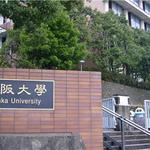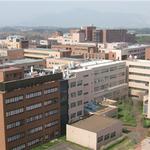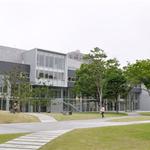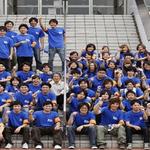Introduction to Nippon Institute of Technology (NIT)
Overview
Nippon Institute of Technology is a private university located in Miyashiro-cho, Minamisaitama-gun, Saitama Prefecture, Japan. It was founded in 1907. The school was formerly known as Tokyo Institute of Technology, which has a long history and is famous for its engineering education. Nippon Institute of Technology has a high reputation in the field of engineering technology and is one of Japan's well-known science and engineering universities.
Campus
Nippon Institute of Technology has one main campus:
Miyaro-cho Campus: Located at 4-1, Gakuendai, Miyashiro-cho, Minamisaitama-gun, Saitama Prefecture, it is the main campus of the school and all courses are conducted here.
Educational Philosophy
Nippon Institute of Technology adheres to the educational philosophy of "practical engineering" and emphasizes the cultivation of students' practical operation skills and innovation capabilities through concrete practical engineering education. The school is committed to cultivating talents with international vision and social responsibility, and pays special attention to the comprehensive development and personality development of students.
Disciplines and Majors
NITU has a number of disciplines and majors covering a wide range of engineering and technology fields:
Faculty of Engineering
Mechanical Engineering
Electrical and Electronic Engineering
Information Engineering
Civil Engineering
Architecture
Material Engineering
Bioengineering
Environmental Engineering
System Design Engineering
Graduate School of Engineering
Mechanical Engineering
Electrical and Electronic Engineering
Information Engineering
Civil Engineering
Architecture
Material Engineering
Bioengineering
Environmental Engineering
System Design Engineering
Featured Courses
Mechanical Engineering: Learn the basic theories and practical methods of mechanical engineering, and cultivate professionals who can work in the manufacturing industry, automotive industry and other fields. Course content includes mechanical design, manufacturing technology, materials science, etc.
Electrical and Electronic Engineering: Learn the basic theories and practical methods of electrical and electronic engineering, and cultivate professionals who can work in the fields of electricity, communications, etc. Course content includes circuit analysis, electronic technology, control systems, etc.
Information Engineering: Learn the basic theories and practical methods of information technology, and cultivate professionals who can work in the fields of computer science, network technology, etc. Course content includes programming, database, network security, etc.
Civil Engineering: Learn the basic theories and practical methods of civil engineering, and cultivate professionals who can work in the fields of construction and infrastructure construction. Course contents include structural engineering, geological engineering, road engineering, etc.
Architecture: Learn the basic theories and practical methods of architectural design and construction, and cultivate professionals who can work in the fields of architectural design and urban planning. Course contents include architectural design, building structure, architectural environment, etc.
Material Engineering: Learn the basic theories and practical methods of materials science, and cultivate professionals who can work in the fields of material development and material processing. Course contents include metal materials, polymer materials, composite materials, etc.
Bioengineering: Learn the basic theories and practical methods of bioengineering, and cultivate professionals who can work in the fields of biotechnology and biomedicine. Course contents include biochemistry, cell engineering, genetic engineering, etc.
Environmental Engineering: Learn the basic theories and practical methods of environmental engineering, and cultivate professionals who can work in the fields of environmental protection and resource management. Course contents include environmental monitoring, pollution control, sustainable development, etc.
System Design Engineering: Learn the basic theories and practical methods of system design, and cultivate professionals who can work in the fields of system integration and product design. Course contents include system analysis, product design, project management, etc.
Practical teaching
Japan Institute of Technology has advanced laboratories and practice bases, providing students with rich practical teaching resources. The school has established cooperative relationships with many companies and research institutions, providing students with rich internship and practice opportunities. The school also has multiple research centers and laboratories to support students in scientific research projects and innovation activities.
International exchange
Japan Institute of Technology actively participates in international exchange programs, and has established cooperative relationships with universities and research institutions in many countries to provide students with opportunities for overseas study and exchange. The school has an international student office to provide comprehensive support and services for international students.
Ranking
Japan Institute of Technology has a high reputation in the field of engineering and technology, especially among private universities in Japan.
Cost
Admission fee: about 200,000 yen
Tuition fee:
About 800,000 to 900,000 yen per year
The specific cost may change, it is recommended to consult the school directly for the latest information.
Campus
Japan Institute of Technology has a beautiful campus environment and complete facilities, including modern teaching buildings, laboratories, libraries and sports facilities. The school also has student dormitories to provide convenient living conditions for out-of-town students.
Contact Information
Tel: +81-48-765-1111
Fax: +81-48-765-1112
Email: info@nit.ac.jp
Other Information
Internship Opportunities: The school has established cooperative relationships with many companies and research institutions, providing students with abundant internship and practice opportunities.
Employment Support: The school has a career guidance center to provide students with employment consultation, resume writing guidance, interview skills training and other services to help students find employment smoothly.
Scholarship System: The school has a variety of scholarship systems to help students reduce their financial burden.
-

The University of Tokyo
-

Kyoto University
-

Osaka University
-

Waseda University
-

Hitotsubashi University
-

Nagoya University
-

Tokyo Institute of Technology
-

University of Tsukuba
-

Keio University
-

Tohoku University
-

Mesoamerican University
-

Istmo University
-

Mariano Galvez University of Guatemala
-

Regional University of Guatemala
-

Galileo University
-

Francisco Marroquín University
-

Rafael Landívar University
-

University of the Valley of Guatemala
-

University of San Carlos of Guatemala
-

Technological Institute of Tlaxcala Plateau
-

Golfo University
-

Technological University of South Sonora
-

Technological University of Huejotzingo
-

Tizimín Institute of Technology
-

Chilpancingo Institute of Technology

